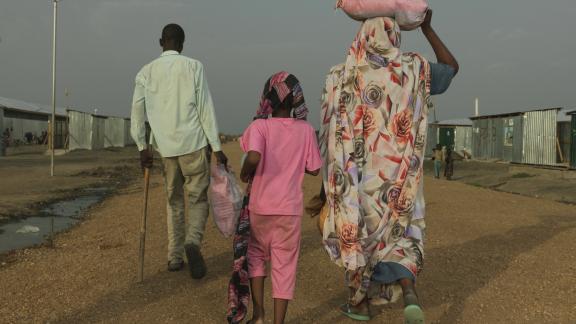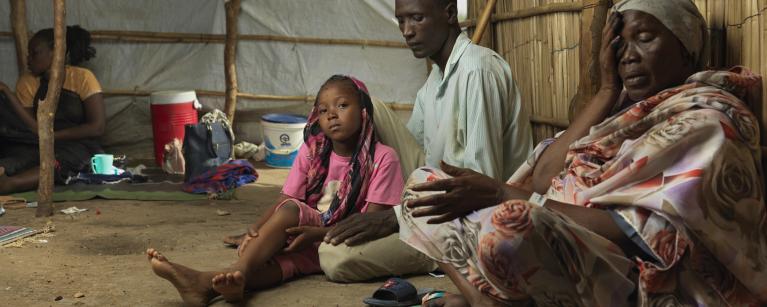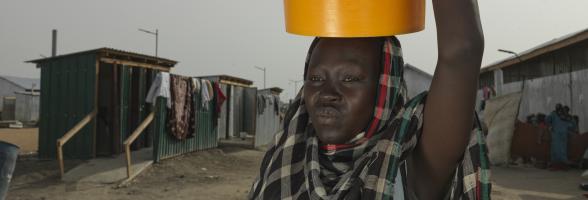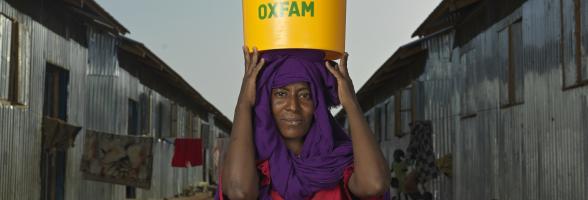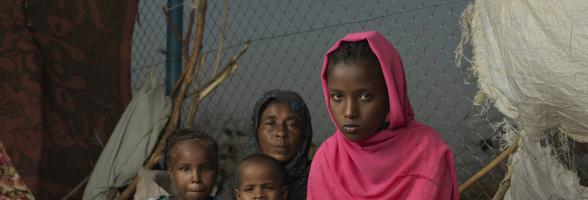“During the war in Sudan, we would hide under our beds. If you lift your head from under the bed, a bullet may hit you, so you have to remain under your bed.”
“In the past two days since I arrived in Renk, I have not seen men with guns, and my heart is finally relaxed,” says Khamis Adam Mohammed.
The ongoing civil war in Sudan now raging over a year of fighting, has displaced more than 8.6 million people. Over two million people have fled to neighboring countries such as Egypt, Chad, South Sudan, and Ethiopia. Khamis is one of the many refugees who has crossed Sudan's border into South Sudan, he tells us his story.
Khamis is a Sudanese man, he is happily married with three children. Before the war started in April 2023, Khamis enjoyed life as a fisherman selling his daily catch at the local market.
His wife was taking care of the family at home, and his children attended school. A year before the war, Khamis fell into a river severely breaking his hip. Financially he was not in a position to seek treatment.
With the aid of a wooden staff, he managed to walk minimal steps with a broken hip. Khamis was no longer physically fit to fish or work. The family’s income dropped significantly. For financial reasons, the situation took a toll on his children.
"My children used to go to school. Once I had my accident, nobody could support them. My children had to drop out of school,” says Khamis. His wife started a small vegetable shop at the market where he once sold fish.
The civil war in Sudan between the Sudanese armed forces and the Rapid Support Forces (RSF), caught up to Khamis’ remote village in early February 2024.
“During the war in Sudan, we would hide under our beds. If you lift your head from under the bed, a bullet may hit you, so you have to remain under your bed. From morning till evening, there would be bullets. Sometimes, the fighting would move to another area for a few days and then come back. Starting all over again! We had to live under our beds again,” reflects Khamis.
After three months of intense fighting, a bullet struck his neighbour's house forcing Khamis to decide it was time to get his family to safety. It took my family around twenty days to plan a safe route to enter South Sudan.
Due to financial restrictions, Khamis’s wife went ahead of him with their two children, “I told my wife and two children to proceed without me,” says Khamis who was left behind with his six-year-old daughter Habiba.
Khamis had to protect his beloved daughter Habiba at all costs, even though they were vulnerable to his physical limitations. “My daughter feared a lot. I tried to support her emotionally; I would hold her tight and tell her not to worry. I would say, don’t fear. We will be traveling soon,” says Khamis.
The bond between the two is apparent. Khamis would die for his daughter. He often took his daughter to the mosque to find time for prayer to help ease her mind. Both of them were supported by their community.
“When we would go to the mosque, people with also very little would help out and I was able to get my daughter to join our family in South Sudan,” says Khamis Two months later after the separation from his family, Khamis raised enough money to join his wife and children.
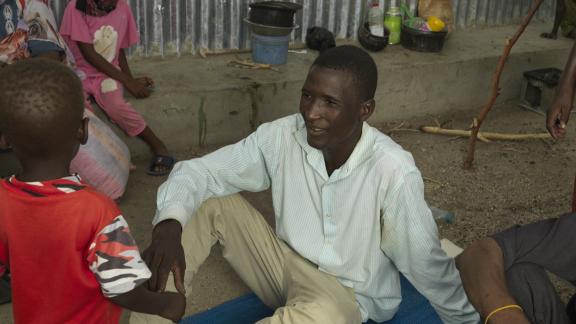
The owners of the shops allowed us to sleep close by for our safety. It was risky but government soldiers were nearby so we were protected,” remarks Khamis, before adding: “On the last bus, I was happy as I knew I would meet my wife and my remaining children who left with her.”
Through the kindness of others Khamis and his daughter made it to South Sudan, The journey to meet his family’s warm embrace took three days, two buses and a lorry. “On the road, we slept near shops.
The family reunited at a transit center in Renk. “I feel happy reuniting with my family, we feel safe here. We do not hear guns firing anymore, so we are relieved. My hope for the future while I am here in Renk is for my family to live in safety,” says Khamis.
The family plans on remaining at the transit center until the war ends. However, there are no signs of the war stopping. For Khamis, a ceasefire is not close in sight. “Once people start killing, there will always be revenge, so the war will not end anytime soon. People have revenge in their heart,” adds Khamis. When the civil war ends, Khamis hopes to return to Sudan with his family and rebuild his life
